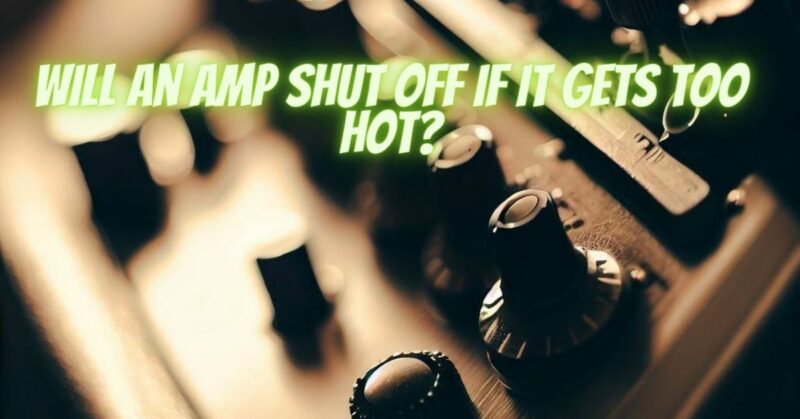Audio amplifiers are crucial components of any sound system, from home stereo setups to professional audio rigs. While amplifiers are designed to deliver powerful and clear sound, they can generate heat during prolonged use. To prevent overheating and potential damage, many audio amplifiers are equipped with safety features designed to shut off the amplifier when it gets too hot. In this article, we’ll explore these protective mechanisms and how they work.
Thermal Protection in Audio Amplifiers:
Most modern audio amplifiers are equipped with thermal protection circuits to safeguard against overheating. These circuits are designed to monitor the internal temperature of the amplifier and take action when it exceeds safe levels.
How Thermal Protection Works:
- Temperature Sensors: Inside the amplifier, there are temperature sensors strategically placed to monitor the temperature of critical components, such as the power transistors and output stage.
- Threshold Detection: The amplifier’s thermal protection circuitry is programmed with a predefined temperature threshold. When the sensors detect that the temperature has reached or exceeded this threshold, the protection circuitry is activated.
- Safety Measures: Once activated, the thermal protection circuitry can take several actions to safeguard the amplifier:
- Reduced Power Output: In some cases, the amplifier will reduce its power output to lower the internal temperature.
- Amplifier Shutdown: If the temperature continues to rise or reaches a critical level, the amplifier may shut down completely to prevent further damage.
Common Causes of Overheating:
Several factors can contribute to overheating in audio amplifiers:
- High Volume Levels: Playing music or audio at high volumes for extended periods can generate heat due to increased power consumption.
- Poor Ventilation: Inadequate airflow around the amplifier or placement in an enclosed space can impede heat dissipation.
- Impedance Mismatch: Running speakers with an impedance lower than the amplifier’s minimum rating can increase the load on the amplifier, leading to overheating.
Protecting Your Amplifier:
To prevent overheating and amplifier shutdown, consider the following measures:
- Proper Ventilation: Ensure your amplifier has sufficient airflow by placing it in a well-ventilated area. Avoid stacking equipment on top of the amplifier.
- Volume Control: Use reasonable volume levels during use, and avoid prolonged periods of high volume.
- Impedance Matching: Match your amplifier’s impedance requirements with the speakers you use to avoid undue stress on the amplifier.
- Regular Maintenance: Clean the amplifier’s vents and ensure that it is free from dust and debris that can impede airflow.
Audio amplifiers equipped with thermal protection circuitry offer valuable safeguards against overheating and potential damage. These protective mechanisms ensure that your amplifier operates within safe temperature limits, prolonging its lifespan and maintaining optimal performance.
By understanding how these safeguards work and taking preventative measures such as proper ventilation and responsible volume control, you can enjoy your audio system without the worry of overheating issues. Ultimately, these protective features are designed to protect your investment and ensure that your audio amplifier continues to deliver high-quality sound for years to come.


